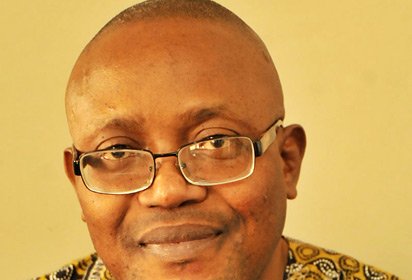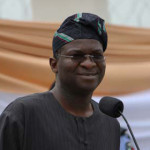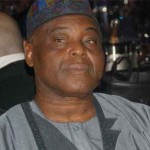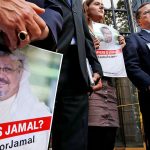The People as their own Ambassador, By Owei Lakemfa
Articles/Opinion, Latest Headlines, News Saturday, March 26th, 2016
I have thought over an issue in the last few weeks. Who are the best ambassadors of a country? The professional diplomats in well-tailored clothes, exhibiting a cultured presence aided by good diction? Or the citizens who fan out to other countries usually to make a living, and exhibiting what can be termed their national traits?
I had thought over this since some of Nigeria’s most accomplished diplomats and intellectuals, and a sprinkling of social writers, met in Abuja in a Friedrich Ebert Stiftung-facilitated “Experts and Stakeholders Meeting on Nigeria’s Foreign Policy and Democratization”
The tone had been set by the cerebral Professor Amadu Sesay who stated as a matter of fact that “There is a symbiotic relationship between foreign policy and domestic policy and indeed, the national interest of a state” This being so, should foreign policy be left in the hands of professional diplomats and politicians, or be determined by the people?
Sesay in challenging the Experts had in his unique style emphasized that the relationship of both policies is one between “the inside and the outside. So, to what extent does the inside of Nigeria affect the outside?” The discussions centred on the path cleared by Sesay; how to re-engineer foreign policy in a way that reflects the domestic; transforming negative domestic images like kidnapping, fraud, corruption, terrorism and separatist demands, into a positive foreign policy. How foreign policy can be used to revive the country’s economy.
Ambassador Eineje Onobu who made the lead presentation argued that the people by freely electing their leaders in a transparent process have ceded foreign policy to the leadership. He said under the Parliamentary System, foreign policy domiciled more with the Parliament with the Prime Minister as captain while under the Presidential System, the President decides foreign policy which is implemented by the Foreign Minister and the Ministry. Onobu declared: “I believe that the day-to-day running of foreign policy must be in the hands of those trained and that it must not be an all-comers affair…What really matters is for foreign policy to be clearly defined, properly understood and properly articulated along the goals of national interests”
Professor W.A. Fawole of Obafemi Awolowo University agreed with Onobu’s presentation. “In all countries, foreign policy is elitist” he argued, adding that the thrust of the debate should rather be on the constitutional role of the National Assembly (NASS) whose powers include domesticating international conventions and authorizing the deployment of troops. For him, “The NASS is a pivotal institution in a democracy” with oversight functions. He identified the main bodies as the Senate and House Committees on Foreign Affairs and the Diaspora.
Ambassador Olufemi George was categorical in his assertion that “Not all Nigerians can be involved in foreign policy” The people he said have their elected representatives to work through and that it is the President who decides the foreign policy of his administration. He told the meeting that under the Obasanjo administration, the President was practically his own Foreign Minister. As for national interest, he said it is as seen by those in power. In this, Dr. Nike Olake of BOWEN University agreed that there is the need to strengthen institutions.
Professor Warisu Alli argued that “The failure of Nigeria in foreign policy is a failure of Nigerian governance.” He lamented the dwindling quality of manpower and felt the focus should be more on the challenge of the Nigerian state which is tottering like a failed state.
Professor Bolade Eyinla contended that there is the need for the democratization of the country’s foreign policy and that government should not be left alone to decide foreign policy. He called on the organizers of the meeting; the Society for International Relations Awareness (SIRA) to engage stakeholders in this process. Dr. Wilson Ijide who is also a retired colonel, agreed with this and made a case both for citizen awareness and participation in foreign policy. Professor Ayo Dunmoye of the Ahmadu Bello University (ABU) expressed worry that the foreign policy space is being monopolized by the elites.
I believe that foreign policy is too important to be left in the hands of politicians and bureaucrats. My logic is that since sovereignty lies with the people, they should dictate domestic policy, and if the domestic determines foreign policy, then the people should be central in its evolution.
From experience, even if the President of a country dictates foreign policy, that does not make him its best ambassador; in fact, he may be virtually unknown in parts of the world. I recall a story the then State House Correspondent of the VANGUARD Newspapers, Ogbeni Tope Awe told me in 1990. He had been on the entourage of then President Ibrahim Badamosi Babangida on a state visit to France. That was in the pre-electronic mail era when the telex was the reliable means of sending stories. The French telex operator confidently told Awe that he had made a mistake on the name of the Nigerian President who is Fela Kuti. Awe patiently explained that Fela was a musician while the President was Ibrahim Babangida; the operator never heard that name before.
The fact is that people like Fela had more impact shaping Nigeria’s international image than President Babangida; just like Bob Marley, Peter Tosh and Burning Spear popularized Jamaica far more than Prime Minister Michael Manley, opposition leader Edward Seaga and their successors.Today, Usain Bolt is known across the universe, but not the Jamaican leader. Pele and the footballers, not politicians and bureaucrats, turned Brazil into an international brand. The Super Eagles have contributed far more in building a positive image of Nigeria abroad than the Foreign Ministry in its entire history. So why should foreign policy be the preserve of ruling politicians and diplomats?
In colonial and post-colonial Nigeria, American and Indian films dominated, today Nollywood has not only unchained Nigerians and challenged cultural imperialism, but also exported Nigerian culture, tradition, mannerisms and pidgin English across the world.
It is primarily, the people who shape the country’s image not some drab foreign policy pronouncements delivered by heavily attired elites. The people are their own ambassador.
Related Posts
Short URL: https://www.africanexaminer.com/?p=31252






















